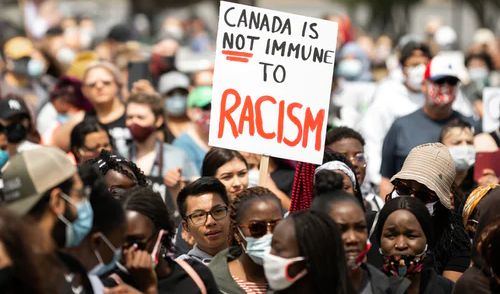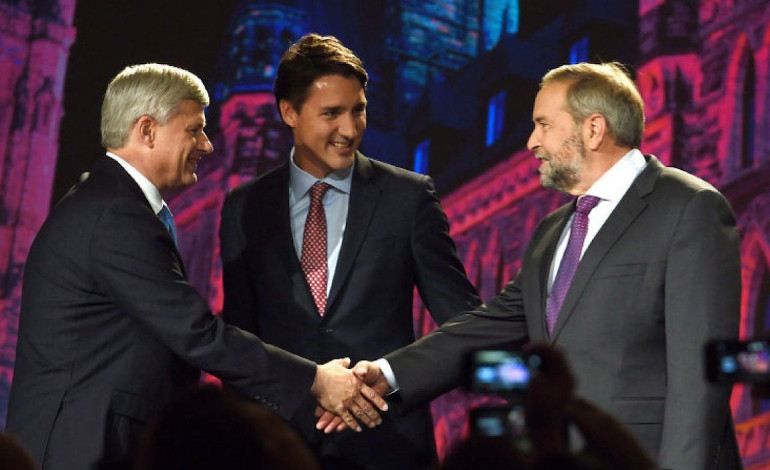Malcolm X said “You can’t have capitalism without racism.” Trudeau wants to tackle systemic racism with capitalism.
In June 2020, Justin Trudeau promised action “very soon” on the systemic racism in Canada. In September, the government announced support for black entrepreneurs and business owners. While some Black business owners and aspiring owners may welcome this, it is hardly tackling systemic racism.
The program includes up to $53 million to develop and implement a new National Ecosystem Fund to support funding and capital, mentorship, financial planning services, and business training. There is up to $33.3 million in support through the new Black Entrepreneurship Loan Fund that will provide loans of between $25,000 and $250,000 and up to $6.5 million towards a Knowledge Hub that will collect data on the state of Black entrepreneurship in Canada.
The problems faced by Canada’s Black population run too deep to be cured by a measure that will help only a small minority of the population and has capitalist designs all over it.
Black Health Alliance (BHA), a community-led charity aiming to improve Black health, found that Black Canadians are 9.4 percent of Canada’s prison population, despite making up only 2.5 percent of the population.BHA further found that 24 percent of Black Ontarians are low income compared to 14.4 percent of the general Ontario population.In BC, 18 percent of Blacks live in poverty, although they make up less than 3 percent of the population.
The impact of COVID-19 on Black communities cannot be stressed enough, for they, along with other marginalized communities, have suffered disproportionately more. A study by the African Canadian Civic Engagement Council and Innovative Research Group showed that Black Canadians are more likely than the average (56 percent to 43 percent) to have suffered layoffs or reduced working hours. Their household finances have been more negatively impacted by COVID-19, than the Canadian average. Black Canadians are more likely than other Canadians to be infected or hospitalized by the disease and nearly three times more likely to know someone who has died after contracting COVID-19.
There is a significant income difference between Black Canadians and others. In 2017, 23.9 percent of Black people fell below the low-income cut-off. Visible minorities in Canada earned $47,487 on average, itself lower than Canada’s average, while the average income for Black Canadians was worse at just over $35,000. Black unemployment, before COVID, was 12.5 percent, compared to 7.7 percent for other visible minorities, and 6 percent for the national average. Racism itself leads towards this staggering financial inequality, with Canadian studies showing that so-called “ethnic” names (including ones common to Black people) receive less consideration on resumes than European names. This ends up leading into a vicious cycle. Due to precarious employment settings, Black parents need to work longer hours to make ends meet and thus spend less time with families, reinforcing a negative spiral of outcomes for children. The devastation of this cycle is particularly evident in second-generation immigrant children, who experience worse mental health than their immigrant parents, all exacerbated by a grossly unequal job market when they enter the workforce themselves.
All of this demonstrates that Justin Trudeau’s recent announcement is unlikely to significantly change things for Canada’s Black population. It is a band-aid solution aimed to appease capitalism’s instinct to abuse social and political crises for its benefit and build a Liberal-voting Black business class.
If the government was genuinely interested in helping the Black workforce, it would work towards increasing minimum wages as a start. Although most workers’ minimum wage is set by the provinces, there are nearly one million federally-regulated workers and raising their minimum wage would send a strong message and increase pressure on the provinces.
In addition, a serious national housing strategy to build good-quality housing with really affordable rents would make an impact on the lives of Black, and all other, low-income Canadians. These actions that tackle low income and poverty would translate into better health and education, and a more humane standard of living.
Another part of systemic racism is the legal criminal system that targets visible minorities. This would require a fundamental purging of the police and a wholesale change of culture and practices of police, prisons, courts and judges.
We are currently going through the worst economic recession since The Great Depression, which is exacerbating racial inequality. Capitalism turned COVID-19 into a disaster and as Malcolm X said, “You can’t have capitalism without racism.” Black people cannot expect fundamental action and change from the Liberals. Alongside campaigns and struggle for real reforms now, it is important to strive for a Socialist world based on equality for all, without poverty or discrimination. Not only is that possible, it is the only solution to humanity’s problems.




